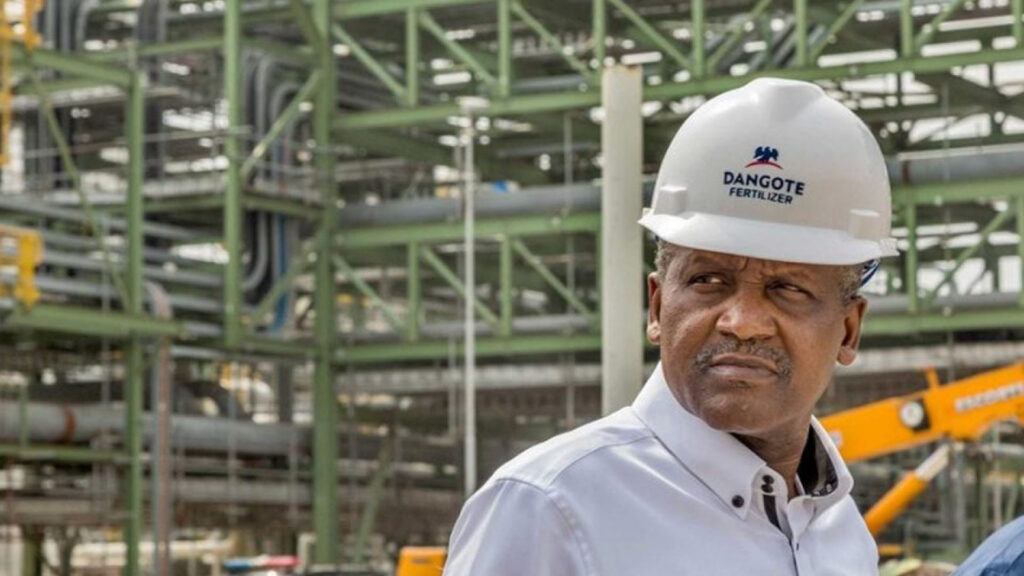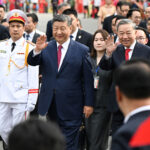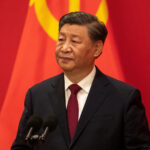In a move that signals a new era for African industry and capital markets, Aliko Dangote, President of Dangote Group, has announced plans to list the conglomerate’s flagship enterprises – the Dangote Petroleum Refinery and Fertilizer Plant – on the stock exchange by the first quarter of 2025.
This decision, revealed during a media tour of the Dangote Refinery, marks a significant milestone in the group’s strategy to democratize ownership of key industrial assets and boost Nigeria’s economic landscape.
Massive Investments Pave the Way for Public Offering
Dangote disclosed that the group has invested a staggering $20 billion in the refinery and $2.5 billion in the fertilizer plant. These substantial investments underscore the scale and ambition of Dangote’s industrial vision.
The refinery, boasting 650,000 barrels per day capacity, stands as the world’s largest single-train facility, positioning Nigeria for self-sufficiency in petroleum product refining and potential leadership in the export market.
Clarifying Ownership and Future Prospects
Addressing misconceptions, Dangote clarified that the Nigerian National Petroleum Company (NNPC) holds a 7.2% stake in the refinery, not 20% as previously reported. This transparency is crucial as the company prepares for its public listing, ensuring potential investors have accurate information.
The refinery is projected to generate an impressive $25 billion annually from 2025, presenting a lucrative opportunity for investors. Dangote emphasized, “We are targeting end of this year but it depends, most likely, worst case we will be able to list them before the end of first quarter of next year, so that we will sell shares and Nigerians will buy.”
Impact on Nigerian Economy and Industry
The Dangote Refinery has already begun to influence the market positively, with diesel prices dropping below N1,100 per litre three times since its operation commenced. This impact on fuel prices could have far-reaching effects on Nigeria’s economy, potentially reducing production costs across various sectors.
Furthermore, the conglomerate’s plans extend beyond oil and gas. Dangote revealed intentions to add nine million tonnes of capacity to the cement industry, with expectations of generating $325 million annually from cement exports.
This diversification strategy aligns with the group’s vision of fostering industrial growth across multiple sectors in Nigeria and Africa at large.

A Call for Domestic Investment and Economic Growth
Dangote used the platform to advocate for increased domestic investment, warning against over-reliance on imports. “It is better to manufacture and grow the economy. If we allow imports so much, we may not be able to compete with other nations,” he stated.
This call to action resonates with ongoing debates about economic self-reliance and industrial development in emerging markets.
Industry Insights: Implications for African Business
The decision to list these industrial giants on the stock exchange carries significant implications for African business and capital markets:
1. Capital Market Development: The listing of such large-scale enterprises could significantly boost the Nigerian Stock Exchange, potentially attracting more foreign investment and deepening the country’s capital markets.
2. Industrial Diversification: Dangote’s multi-sector approach exemplifies a trend towards industrial diversification in Africa, moving away from traditional resource-based economies.
3. Regional Economic Integration: The scale of these operations positions Nigeria as a potential industrial hub, which could accelerate regional economic integration efforts in West Africa and beyond.
4. Investor Education: The public listing of these companies provides an opportunity for broader investor education in Nigeria, potentially increasing public participation in the stock market.
Looking Ahead: A New Chapter in African Industrialization
As Dangote Group prepares to open its flagship enterprises to public investment, the move represents more than just a corporate strategy. It symbolizes a broader shift in African business, where homegrown industries are not only competing on a global scale but also inviting local participation in their growth story.
The success of this initiative could set a precedent for other African conglomerates, potentially catalyzing a new wave of industrial development and economic empowerment across the continent. As these plans unfold, the eyes of the global business community will undoubtedly be fixed on Nigeria, watching as this ambitious vision of African industrial prowess takes shape.







